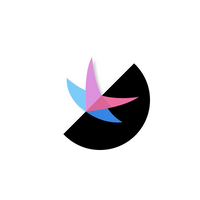Auxre ·
Axure Promotion ·
Prototype ·
Prototyping ·
UI/UX ·
UI/UX designer ·
User Experience ·
UX Design ·
UX designer ·
Why I Don't Recommend Attending a Bootcamp to Learn UI/UX Design
More contents: https://axureboutique.com
Axure RP 10 downloads:
Axure Libraries: https://axureboutique.com/collections/libraries
Axure Templates: https://axureboutique.com/collections/templates
Product & UX Tools: https://axureboutique.com/collections/ux
Free Products: https://axureboutique.com/collections/free
Mobile Products: https://axureboutique.com/collections/mobile
In recent years, bootcamps have gained popularity as a quick and intensive way to learn new skills and transition into a new career. However, when it comes to learning UI/UX design, I believe that attending a bootcamp may not be the most effective or comprehensive approach. We will explore the reasons why I don't recommend attending a bootcamp to learn UI/UX design and why alternative learning methods may be more beneficial.
Lack of Depth and Specialization:
One of the main drawbacks of bootcamps is that they often provide a broad overview of UI/UX design principles and techniques without delving deep into specific areas. UI/UX design is a multidisciplinary field that encompasses various aspects such as user research, interaction design, information architecture, and visual design. Bootcamps typically cover these topics in a condensed timeframe, leaving little room for in-depth exploration or specialization. This lack of depth can hinder the development of a strong foundation in UI/UX design.
Limited Time for Practice and Iteration:
UI/UX design is a skill that requires practice and iteration to truly master. Bootcamps usually have a fixed duration, ranging from a few weeks to a few months, which may not provide enough time for students to fully grasp and apply the concepts they learn. Learning UI/UX design is an ongoing process that requires continuous practice, feedback, and refinement, which may be better facilitated through alternative learning methods such as online courses or self-paced learning platforms. These methods allow learners to practice at their own pace and iterate on their designs based on feedback.
Lack of Real-World Experience:
While bootcamps may provide some hands-on projects or case studies, they often fall short in providing real-world experience. UI/UX design is not just about theoretical knowledge; it also involves understanding user needs, collaborating with stakeholders, and navigating complex design challenges. Online learning platforms often offer opportunities to work on real-world projects, collaborate with industry professionals, and gain practical experience that can better prepare you for a career in UI/UX design. This practical experience is crucial in building a portfolio and demonstrating your skills to potential employers.
Limited Networking Opportunities:
Networking is an essential aspect of career development, and bootcamps may not offer the same level of networking opportunities as traditional education or online learning platforms. Attending a university or taking online courses allows you to connect with a broader community of professionals, join industry events, and engage in discussions with experts in the field. These networking opportunities can open doors to job opportunities, mentorship, and ongoing learning. Building a strong professional network is invaluable in the UI/UX design industry.
Cost Considerations:
Bootcamps can be quite expensive, with tuition fees ranging from a few thousand to tens of thousands of dollars. While they may promise job placement assistance or a guaranteed return on investment, it's important to consider the cost-benefit ratio. Online learning platforms often offer more affordable options, flexible payment plans, and the ability to learn at your own pace, making them a more cost-effective choice for acquiring UI/UX design skills.
While bootcamps may offer a quick and structured learning experience, they may not provide the depth, real-world experience, networking opportunities, and cost-effectiveness that alternative learning methods can offer. Learning UI/UX design is a continuous journey that requires practice, feedback, and ongoing learning, which can be better facilitated through online courses or self-paced learning platforms. By choosing alternative learning methods, you can gain comprehensive knowledge, practical experience, and the flexibility to learn at your own pace, ultimately setting yourself up for success in the field of UI/UX design.




































Leave a comment